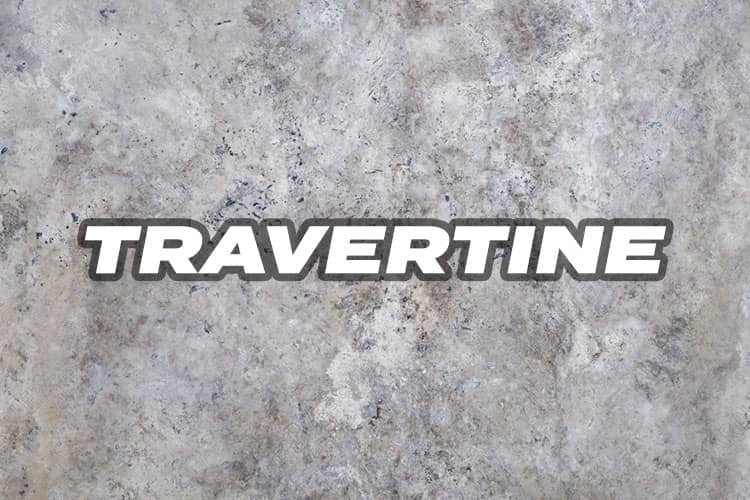When making over your kitchen, you may wonder: which type of natural stone should I use for my new countertops? Before you automatically go with granite, which is great, why not try something a bit different, like travertine? This is a beautiful, conversation-sparking natural stone that’s gaining in popularity with homeowners looking to remodel their kitchens.
Check out these many benefits of travertine and what to know before buying from your reputable Dedham stone installers.
A History
Fun fact: travertine actually begins as limestone, then goes through a quick sedimentary process brought on by water. The Rome travertine quarries of Tivoli, formed through millions of years, were tapped by ancient builders when they were constructing St. Peter’s Square and Basilica.
Another fun fact: marble and travertine are both included under the umbrella of limestone due to their high makeup of calcite minerals. What makes them different is their geological formation processes. Limestone forms naturally with its own biological process but doesn’t change to marble unless there is a volcanic or magmatic event going on.
Formed by high pressure and heat, travertine has been used in the construction of impressive structures globally for many thousands of years. Because it resembles the appearance of marble, it’s often referred to as onyx marble. It’s usually imported from Mexico, the Middle East, and Turkey.
A Range of Colors
Travertine is a good choice if you want earth tones incorporated into your kitchen counters. Available in a variety of colors and patterns, you can get travertine in the following colors:
- Creamy white
- Tan
- Earthy brown
- Copper
- Walnut
- Gold
- Beige
- Ivory
- Coral
Veining and Light Reflection
Travertine countertops reveal and elegant and delicate veining that has slight imperfections for a realistic yet beautiful look. And because travertine reflects light well, this brightens up your kitchen by magnifying the natural light.
Porosity and Hardness Levels
You’ll have to seal your travertine countertops on a regular basis to ensure continued vibrancy. Travertine happens to be more porous than other stone types, meaning it’s at a higher risk of staining from acidic substances like wine, coffee, juice and soda. But because travertine is good at absorbing water and moisture, you can use it for your bathroom flooring or counters too.
In terms of hardness ratings, travertine has a high one. This means it can withstand heat better than other types of natural stone. Setting a pan down on the counter won’t damage it, due to this ability to accommodate extreme temperature changes. That being said, you should always use a pot holder or trivet just in case.
Versatility and Affordability
Travertine is relatively easy to cut and shape, facilitating the installation of small and odd-shaped parts of your counters, particularly at corners and in other tight spaces. This versatility makes it an ideal candidate for sinks, backsplashes, showers, and fireplace panels.
You won’t go broke buying travertine counters, as it’s more affordable than other stones such as granite and marble. Also, you’ll be happy to know this natural environmentally-friendly product is a green-conscious, sustainable choice for your home.
Contact Granite Guy
To learn more about installing travertine countertops in your kitchen, contact us at 508-460-7900 to make an appointment with our Boston stone installers.

